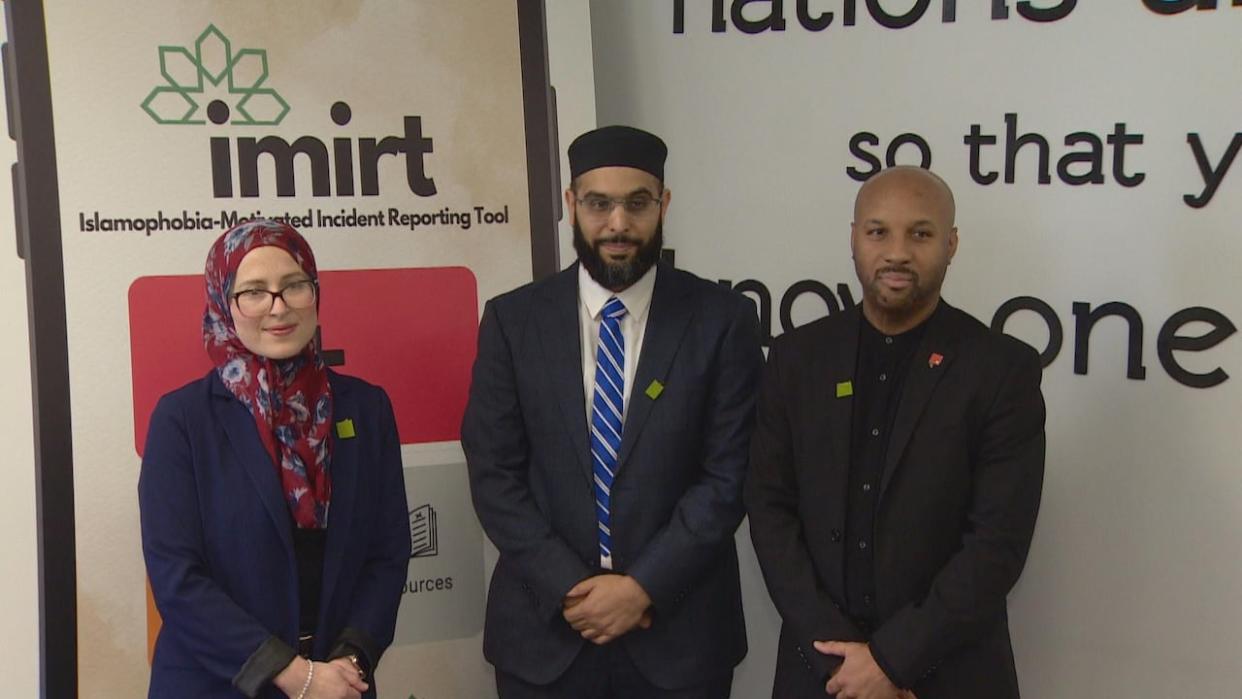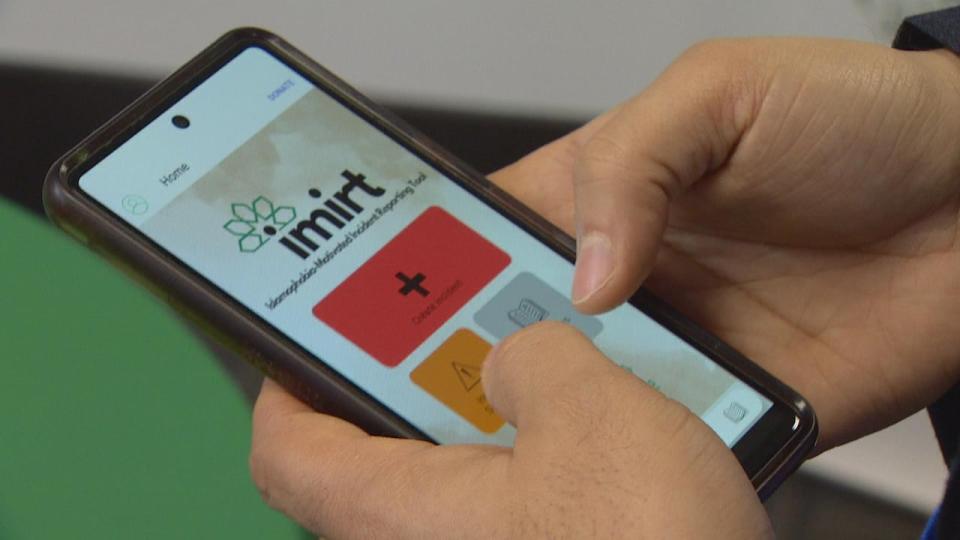Muslim community leaders launch app to help people report Islamophobic incidents

Leaders of Muslim communities hope a new hate crime reporting tool can help bridge the gap between underreported hate incidents and official statistics.
The Islamophobia-Motivated Incident Reporting Tool (IMIRT) app, which is available nationwide, was unveiled Saturday at the Tawheed Community Centre in Mississauga.
Imam Ibrahim Hindy said the app has its roots in a hate-motivated incident on Mar. 19, 2022, when a man walked into the nearby Dar Al-Tawheed Islamic Centre and discharged bear spray toward people while brandishing a hatchet. Amid a renewed wave of Islamophobic sentiment, the organizations behind the app want to make sure those in the community know it's available.
"This app is not merely a tool for reporting incidents, it's a resource for the community," said Hindy, who is also the religious director for Yaqeen Canada at Yaqeen Institute for Islamic Research.
"It allows us to identify patterns, understand the dynamics of Islamophobia and to advocate for necessary changes to protect our community."
According to Toronto police statistics, hate-motivated incidents against those in the community spiked in Ontario since last October, when the Israel-Hamas war started. But many in the community say incidents still go underreported due to a mistrust of police that keeps victims from coming forward.
The National Council of Canadian Muslims (NCCM), which helped create the app, said it logged 274 hate incidents nationwide between mid-October and mid-November, over 60 per cent in Ontario alone.
While there was a "huge increase" after Oct. 7, Uthman Quick, the council's director of communications, says this isn't the first time they've seen a huge spike.
"These reports come from every aspect of society. Schools, places of worship, workplaces, people being physically and verbally assaulted on the streets," Quick said.
"And these are the reports that we receive at NCCM. We know that there is much more out there, including reports to other organizations in our communities, and a lot that goes unreported as well. This app will make things easier."
App can help identify patterns, spur authorities to act: expert
These kind of third-party reporting mechanisms have become important spaces for Muslim communities, particularly given a history of distrust of law enforcement that comes with being both over- and under-policed, said Barbara Perry, the director of the Centre on Hate, Bias and Extremism at Ontario Tech University.
"When they do report, you know, it's often not taken seriously," she said.
Perry says apps like IMIRT can help identify trends in hate-motivated incidents that can then be taken to law enforcement.
"It is a way of documenting the problem so that, you know, there can be pressure then brought to bear to act," she said.

The IMIRT app will help people report suspected Islamophobic incidents. (Igor Petrov/CBC)
Research has shown people may also be hesitant to report to police over concerns around additional victimization and wanting to avoid bringing "negative attention" to oneself, their community or institution, said Canada's first anti-Islamophobia representative Amira Elghawaby.
While the app isn't meant to replace law enforcement for serious hate crimes, Elghawaby says it can help provide support in the form of communication and possible counselling.
"These are important, very effective ways to address the urgent fight we have to combat hate in Canada," she said.
Hindy says data won't be shared and there are no plans to collaborate directly with police. But he hopes IMIRT helps start dialogue between the Muslim community at large and authorities.
"We're really open to meeting with law enforcement, showing them what the app can do, seeing what their feedback is," Hindy said.

 Yahoo News
Yahoo News 
